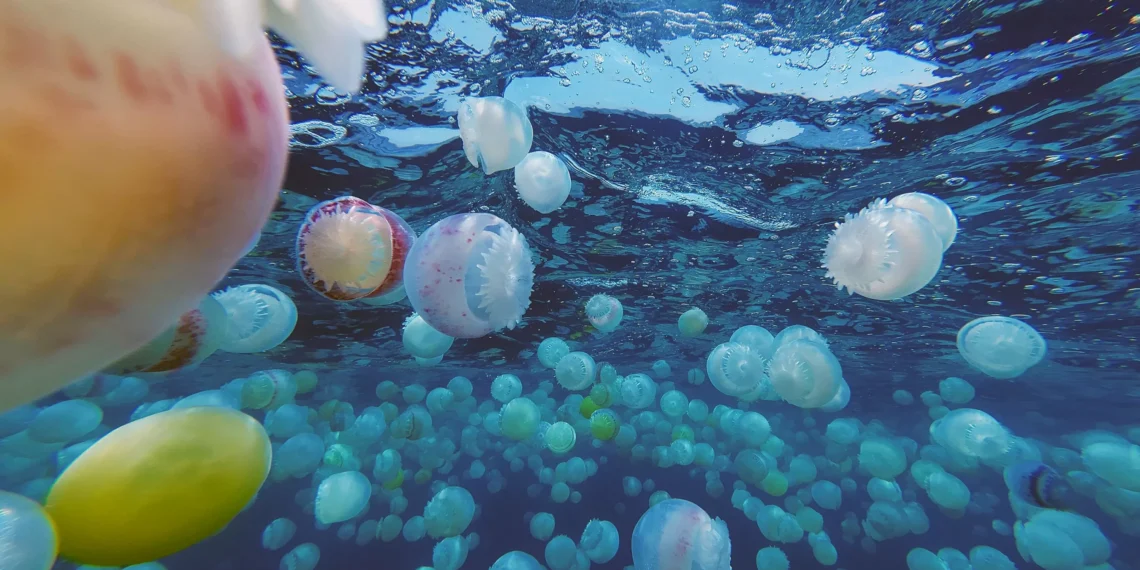The vibrant colors of the jellyfish floating in the crystal clear waters of Aragua, Venezuela may seem like a picturesque sight, but for the local fishermen, it has become a major source of concern. These once rare and occasional visitors have now become a constant and disruptive presence, affecting the livelihoods of the fishermen and the delicate ecosystem of the region. This phenomenon is a result of climate change and it is a wake-up call for us to take action before it’s too late.
Aragua, a coastal state in Venezuela, is known for its stunning beaches and rich marine life. The turquoise waters are home to a variety of fish species, making it a popular fishing spot for the local community. However, in recent years, the waters have been invaded by colorful jellyfish, making it difficult for fishermen to carry out their daily activities. These jellyfish are not only a hindrance to fishing, but they also pose a danger to the fishermen as their stings can be harmful.
The increase in jellyfish population is a direct result of climate change. The rise in ocean temperatures and changes in currents have created the perfect environment for these creatures to thrive. The warmer waters also lead to an increase in plankton, which is the main food source for jellyfish. With an abundance of food, these jellyfish reproduce at an alarming rate, leading to their overwhelming presence in the waters of Aragua.
The impact of these jellyfish on the local fishing industry cannot be ignored. The fishermen, who rely on the ocean for their livelihood, are facing major challenges. With the jellyfish population increasing, it has become difficult for them to catch fish, as the jellyfish get caught in their nets or tangle their lines. This not only leads to a decrease in their catch but also causes damage to their equipment. As a result, the fishermen are unable to provide for their families and are struggling to make ends meet.
Moreover, the presence of jellyfish has also affected the marine ecosystem of Aragua. These creatures feed on plankton, which is an essential food source for many fish species. With an increase in jellyfish, there is a decrease in the plankton population, leading to a decline in the number of fish in the waters. This disrupts the balance of the ecosystem and can have long-term consequences on the marine life of the region.
The government of Venezuela has taken notice of this issue and has implemented measures to address it. They have launched campaigns to educate the local community about the importance of preserving the marine ecosystem and the impact of climate change. They have also introduced fishing regulations to control the number of fish caught, in order to allow the population to replenish. These efforts are commendable, but more needs to be done to tackle the root cause of the problem – climate change.
It is crucial for all of us to take responsibility for our actions and make efforts to reduce our carbon footprint. Small changes in our daily lives, like reducing the use of plastic, conserving energy, and using sustainable means of transportation, can go a long way in mitigating the effects of climate change. We must also hold our governments and corporations accountable for their actions and urge them to take steps towards a greener and more sustainable future.
The jellyfish invasion in Aragua is a clear indicator of the impact of climate change and the urgent need for action. We cannot turn a blind eye to this issue and must work together to find solutions. The colorful jellyfish may be a beautiful sight, but the consequences of their presence are far from beautiful. It is time for us to take action before it’s too late and preserve the beauty of our oceans for future generations to come.







